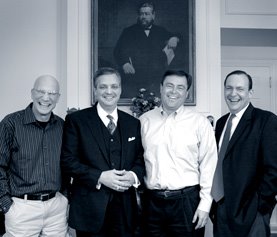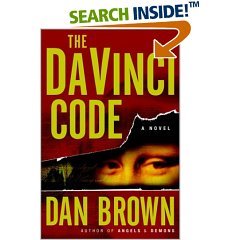
The epic conference was really good. I really enjoyed being with 2,000 of my fellow brothers in Christ, who are so committed for the gospel of Christ. Here’s a belief summary of what I learned from each of the speakers:
Mark Dever – “The Pastor’s Understanding of His Own Role”

Using 1 Corinthians 4, Dever taught that a real minister has 3 marks: 1) a person with a cross-center message 2) a person with a cross-centered life 3) a person who has a cross-centered followers
Dever’s message reminds me that my ministry is a gift from God, who is my master and judge.
Ligon Duncan – “Preaching from the Old Testament”
- Preach the OT has a Christian book
- Preach expository
- Preach Christ
- Preach that there is one plan of redemptive history
- Preach grace
- Preach Character of God
- Preach Experientially
- Preach for the Christian life (moral law/3 rd use of the law)
Al Mohler – “Preaching with the Culture in View”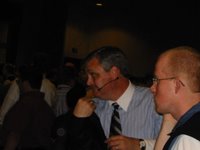
Mohler reminds us that culture isn’t irrelevant, but as teachers of God’s word, we shouldn’t be too embedded in it. Mohler also reminds the audience that we should engage in the culture always with the mind and mission to make known the gospel of Christ.
Mohler also describes our culture as: 1) seeking self-fulfillment 2) being self-sufficient 3) self-defined 4) self-absorbed 5) self-transcendent 6) self-enhanced and 7) self-secured.
R.C. Sproul – “The
 Dr. Sproul gave a passionate and heart-felt plea to church leaders to remain firm and faithful to the doctrine of justification. Dr. Sproul reinforces the need to hold on to the doctrine of justification (faith alone) by reminding and analyzing for us theCatholic’s view of justification (faith + works).
Dr. Sproul gave a passionate and heart-felt plea to church leaders to remain firm and faithful to the doctrine of justification. Dr. Sproul reinforces the need to hold on to the doctrine of justification (faith alone) by reminding and analyzing for us theCatholic’s view of justification (faith + works).
John Piper – “Why Expositional Preaching is Particularly Glorifying to God”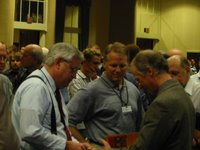
Dr. Piper talk was awesome. I’ll write a full article about it later.
C.J. Mahaney – “Watch Your Life and Doctrine”
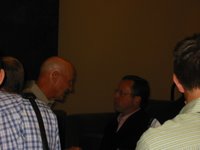 I thanked God that C.J. was at the conference. He really made the conference fun and exciting with all his clever and funny comments. (You really had to be there to understand why he made the conference so special).
I thanked God that C.J. was at the conference. He really made the conference fun and exciting with all his clever and funny comments. (You really had to be there to understand why he made the conference so special).
CJ spoke about how church leaders need to watch their life and doctrine, reminding them with 1Timothy 4, that the consequence of this, is salvation for the minister and his congregation (there is an eternal consequence).
John MacArthur – “40 Years of Gospel Ministry”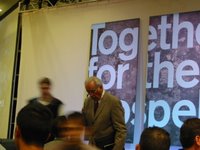
Dr. MacArthur spoke from his heart about his experiences at

